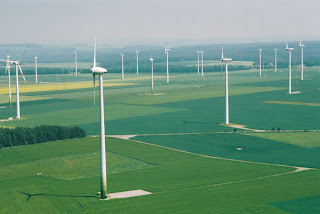
CYPRIOTS Danes and the Irish produce the most waste per capita in the whole European Union, while the Czechs, Poles and Slovaks the least, data from the EU's statistics office showed yesterday.
Eurostat said one Dane produced on average 802 kg of municipal waste in 2008, the highest rate in the 27-nation bloc. Cypriots generated 770 kg of waste on average – 10 kilos per person more than the average American - and the Irish 733 kg.
However the data also showed that even though Danes produce more waste, Denmark burned 54 per cent of its waste, recycled a further 24 per cent and composted 18 per cent, putting only 4 per cent of it into landfills.
Cyprus, however, stowed 87 per cent of the rubbish in landfills and recycled only the remaining 13 per cent, compared to 48 per cent in Germany – the top country for recycling in the EU.
The island was in sixth highest position when it came to landfill dumping. But taking into account the fact that the other countries ahead of Cyprus - five eastern European states - only produce half the amount of rubbish per person, the situation changes.
The Czechs produced 306 kilos of rubbish per capita, the Poles 320 kilos and the Slovaks 328 kilos.
The figures leave Cyprus clearly in the landfill lead along with Malta, which although produces 100 kilos per person less, throws 97 per cent on landfills and recycles only three per cent.
Environment Commissioner Charalambos Theopemptou said yesterday the difference between Cyprus and Denmark when it came to the waste issue was that the latter had efficient system to dispose of it. “This is the difference. It’s what you do with the waste after you produce it,” he said.
“Other countries have policies to cut waste, strict checks strict recycling laws. Not anyone who wants is allowed to dump waste.
He said that in other countries companies, supermarkets and others who produce a lot of waste are not allowed to dump them in landfills. They are forced to take them for recycling.
“They are very strict,” he said. “We have landfills and we dump whatever we want.”
Last week DISY deputy Kyriacos Hadjiyiannis described Cyprus as an “open landfill” during a House
Environment Committee.
Chairman Andreas Fakontis said 113 landfills are currently in operation across Cyprus and there was absolutely no policy for scaling back the production of refuse. He said no measures are taken to cut waste and save money by having smaller waste processing units.
He also said abandoned landfills were one of the most serious environmental problems in Cyprus. “While they are closed, they continue to be sources of pollution; the ground continues to be contaminated; the aquifers; toxic substances are produced and foul smell,” Fakontis said.
Fakontis added that people continue to dump rubbish in these landfills illegally.
The House wants inspectors who will be responsible to penalise those who dump waste illegally by imposing a substantial on-the-spot fine.
Fakontis said the government has given its okay but these ‘green’ inspectors have not been appointed yet।
CyprusMail
















